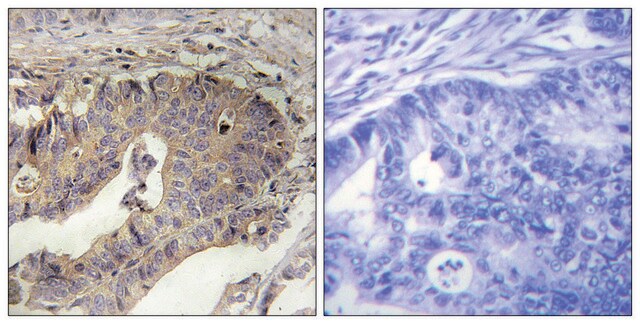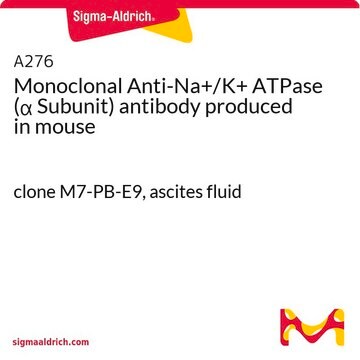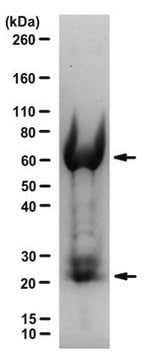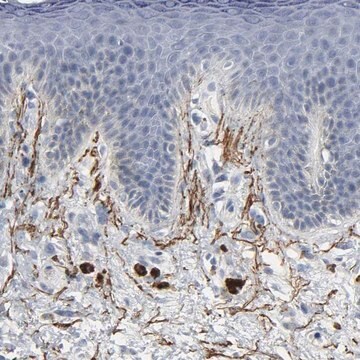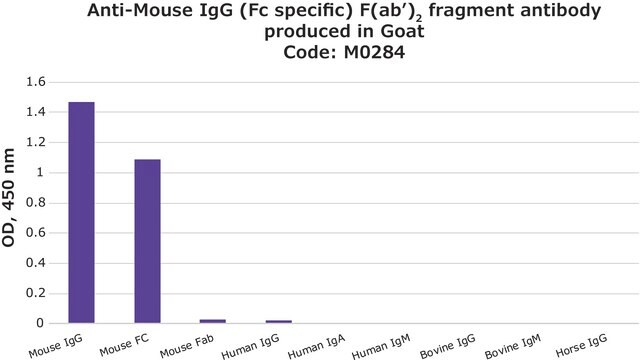MAB1919
Anti-Fibrillin Antibody, clone 11C1.3
clone 11C1.3, Chemicon®, from mouse
Sinónimos:
Anti-ACMICD, Anti-FBN, Anti-GPHYSD2, Anti-MASS, Anti-MFLS, Anti-MFS1, Anti-OCTD, Anti-SGS, Anti-SSKS, Anti-WMS, Anti-WMS2
About This Item
Productos recomendados
biological source
mouse
Quality Level
antibody form
purified antibody
antibody product type
primary antibodies
clone
11C1.3, monoclonal
species reactivity
bovine, pig, human
manufacturer/tradename
Chemicon®
technique(s)
ELISA: suitable
immunofluorescence: suitable
immunohistochemistry: suitable (paraffin)
immunoprecipitation (IP): suitable
western blot: suitable
isotype
IgG1κ
NCBI accession no.
UniProt accession no.
shipped in
dry ice
target post-translational modification
unmodified
Gene Information
human ... FBN1(2200)
Categorías relacionadas
Specificity
Immunogen
Application
Immunohistochemistry: fresh frozen tissue: 1:200-1:500. Paraffin sections reactive after microwave citrate buffer antigen retrieval.
Immunoprecipitation: 5 microliters of antibody diluted in no more than 400 microliters of concentrated supernatants from bovine smooth muscle cells. We recommend either an anti-mouse IgG bead or a rabbit anti-mouse capture antibody followed by protein A.
ELISA
Optimal dilutions must be determined by the end user.
Cell Structure
ECM Proteins
Physical form
Storage and Stability
Legal Information
Disclaimer
¿No encuentra el producto adecuado?
Pruebe nuestro Herramienta de selección de productos.
Optional
Storage Class
12 - Non Combustible Liquids
wgk_germany
nwg
flash_point_f
Not applicable
flash_point_c
Not applicable
Certificados de análisis (COA)
Busque Certificados de análisis (COA) introduciendo el número de lote del producto. Los números de lote se encuentran en la etiqueta del producto después de las palabras «Lot» o «Batch»
¿Ya tiene este producto?
Encuentre la documentación para los productos que ha comprado recientemente en la Biblioteca de documentos.
Nuestro equipo de científicos tiene experiencia en todas las áreas de investigación: Ciencias de la vida, Ciencia de los materiales, Síntesis química, Cromatografía, Analítica y muchas otras.
Póngase en contacto con el Servicio técnico